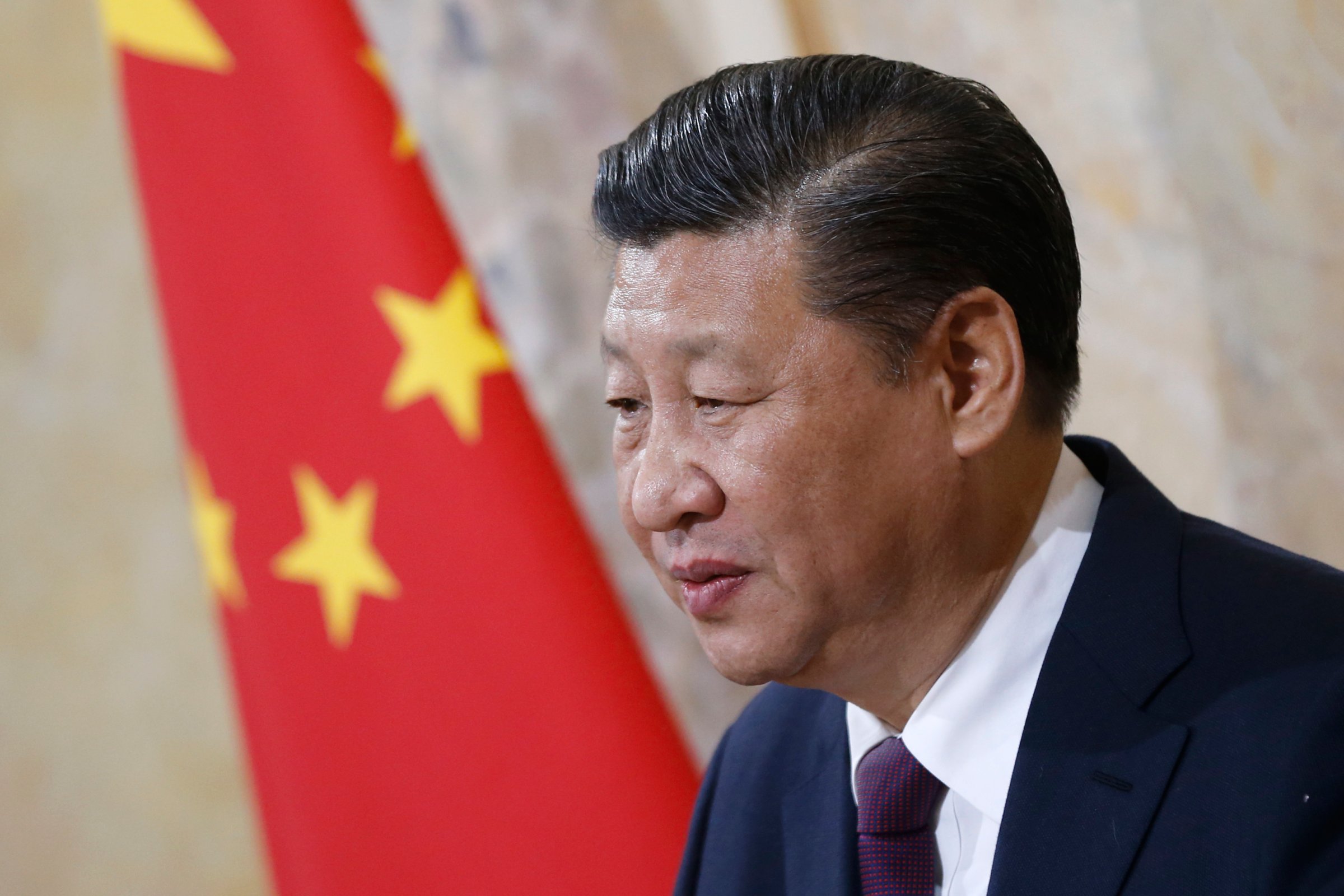
On Tuesday, Xi Jinping becomes the first Chinese leader to address the World Economic Forum in the swish Swiss Alpine resort of Davos. The thrust of his speech will be “inclusive globalization,” Chinese officials have revealed, in a none-too-subtle reply to the neo-protectionism advocated by U.S. President-elect Donald Trump, whose inauguration takes place in three days.
To recap, that’s the leader of the Chinese Communist Party (CCP) standing before 3,000 of the richest and most influential capitalists on earth to preach global free trade and combating climate change to the incoming leader of world’s largest economy, whose insular campaign focused on import tariffs, withdrawing America from trade blocs like NAFTA and burning more coal.
But there is a subtler irony about Xi’s appearance: China’s record on free trade is actually pretty poor. Large sections of the Chinese economy are closed off to foreign trade, its leviathan state-owned enterprises (SOEs) enjoy such preferential treatment to render competition meaningless, and intellectual property theft is rife among Chinese firms. Moreover, the landscape for foreign investment is deteriorating, with larger subsidies for SOEs and draconian national-security rules, like last November’s cybersecurity law, throwing up additional barriers for foreign firms. And all the while China demands — and largely gets — unfettered access into other nations’ markets.
Read More: Despite His Tough Talk on Trade Donald Trump Still Has Lots of Face at This Chinese Factory
“I am all in favor of an adjustment of the U.S.-China economic platform,” says Derek Scissors, chief economist of data-analytics firm China Beige Book International. “I don’t think they are a good economic partner,” he says of China.
All this has contributed to the swell of support for Trump, who has repeatedly accused China of being a currency manipulator and employing predatory trade practices. His campaign was predicated on the, albeit specious, claim that the U.S-China trade deficit — $367 billion in 2015, though falling — is costing America jobs. While few economists agree with this assessment, nor that lower GDP directly spurs higher unemployment, it’s undeniable that the übernationalist Chinese leadership isn’t playing very fair.
Of course, China’s economy has its own problems. Exports shrank 6.1% to $209.4 billion in December compared with the same month the year before, according to customs data posted Friday — the eighth consecutive monthly fall. Trade in general is suffering, with combined imports and exports contracting 6.8% last year. “If you look at inventories, you look at new orders, you look at cash flow, we see clear evidence that China will not sustain [its current] performance,” says Scissors.
But more pressing for China is its balance of payment woes. A lot of money is leaving the country, and although China can weather considerable gross capital outflow because it has by far the world’s biggest trade surplus, once you start eating into that trade surplus then real dangers crop up.
Read More: Why America Would Lose a Trade War With China
“If Trump targets China’s exports to the United States, these policies might also harm U.S. allies in the region, who export components to China that are incorporated into products that China then exports to the United States,” says Professor M. Taylor Fravel, a political scientist at the Massachusetts Institute of Technology. “None of the U.S. allies would support a U.S.-China trade war.”
Nevertheless, Trump’s trade team is stacked with China hawks, including Peter Navarro, an economics professor and author of Death by China, and Robert Lighthizer, a deputy trade representative during the Reagan Administration and another advocate of tariffs on U.S. imports. The real estate mogul has also irked China by repeatedly questioning Taiwan’s status and challenging its building of artificial islands in the South China Sea.
Trump’s rise couldn’t come at a worse time for Xi, with 2017 heralding the 19th five-yearly National Congress of the CCP. During this seminal political meeting more than half of the Politburo Standing Committee — the nation’s apex political body — is expected to be replaced. The next generation of leaders will be anointed and the party’s ideological direction redefined. An internecine trade war with the U.S. would be a black mark for Xi just when he needs to be squeaky clean to assert his authority to the maximum.
Read More: How Trump Could Start a Trade War in His First 100 Days
“The trade issue is most pressing for Xi, because China’s economy will slow down, and also the global economy is also in a bad shape,” says Professor Zhu Feng, an international-relations expert at Nanjing University. “If both powers get into a trade war it will disrupt the markets on either side.”
To avoid that, Xi can start by reforming some of the unfair practices in the Chinese economy, giving foreign firms a more level playing field. He can also encourage Chinese investment in the U.S. that brings about the kind of low-skilled manufacturing jobs that Trump vowed to bring home. Trump supporters may be misguided in thinking that curbing free trade will solve all their problems, but their concerns are still very real. Xi can safeguard his country’s economy, thereby his own political ambitions, by making China a better country with which to do business.
More Must-Reads from TIME
- Donald Trump Is TIME's 2024 Person of the Year
- Why We Chose Trump as Person of the Year
- Is Intermittent Fasting Good or Bad for You?
- The 100 Must-Read Books of 2024
- The 20 Best Christmas TV Episodes
- Column: If Optimism Feels Ridiculous Now, Try Hope
- The Future of Climate Action Is Trade Policy
- Merle Bombardieri Is Helping People Make the Baby Decision
Write to Charlie Campbell / Beijing at charlie.campbell@time.com